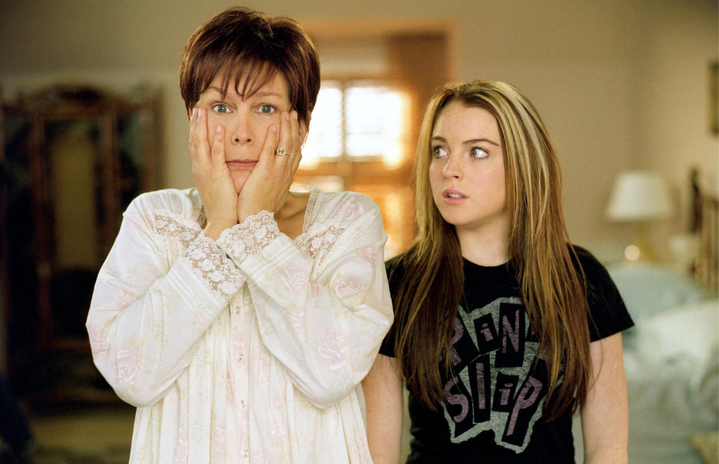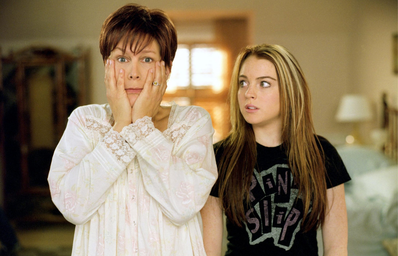Within the past few years, Disney has come out with a few movies that have been a hit with the masses. I’m not talking about Frozen, Moana, or any of the Disney Channel original movies. The movies I want to highlight are 2017’s Coco, 2021’s Encanto, and the most recent, 2022’s Turning Red.
The movies each have their own charm and differences. Coco has a sweet young boy, Miguel, who wants to be a musician, despite his family’s wishes. Turning Red tells the tale of Mei trying to navigate her youth while living up to her mom’s expectations while dealing with a surprise from her family. And Encanto… I mean, have we heard the sound track?! Encanto focuses on Mirabel as she tries to figure out why her family’s magic is starting to fade in order to save her house.
However, there’s one huge similarity between these beloved films. None of these films have a major villain from the start. In fact, for these films, even if there is a ‘villain’ like Ernesto de la Cruz in Coco, there’s a bigger issue within these films. Generational trauma is an overriding theme in all three of these films. And while we get the happy endings of the main character finally breaking the cycle, there’s some details that aren’t as real as we think.
So here’s the questions: which lessons are worth taking away from these newer Disney movies? And which moments should we be wary of?
Be aware, this article will contain spoilers for these movies!
- What is Generational Trauma?
The first thing to discuss: what is generational trauma? Duke’s Office for Institutional Equity has a great definition to start with. Generational trauma, or intergenerational trauma, is “a concept developed to help explain years of generational challenges within families”.
Maybe you’ve experienced it yourself, through a particular person everyone expects you to mirror, or maybe expectations that are normal within your culture. Everyone who experiences generational trauma goes through it differently, but not everyone knows when it’s happening. In fact, familial challenges can be so quiet, no one could guess what’s going on in your life. However, the illusion of being the ‘perfect family’ can crack over time, and that’s when everyone notices.
- The Surface Pressure of Being Someone’s Vision
Let’s all agree on one thing. We’re not Isabela.
Perfection is hard to expect. Sure, we want the best for our families, our children. But it’s not easy to achieve, especially when the end goal involves being everything our parents and those before us couldn’t be. It comes from older siblings needing to be there for everyone while doing everything to make their families proud. It starts with young children having the expectation to stand out from the rest and do things that might not make them happy.
Do we ever wonder what might happen if we just didn’t need to be perfect, like how Mei constantly tries to live up to her mother’s expectations for perfection in Turning Red? Or if we didn’t need to follow rules put on us, like in Coco when Miguel’s elders banned music for everyone in the family. It’s expectations like these when we have rules we ‘have’ to follow that begin to bring us down. The image we have to replicate is always on our minds.
It’s hard to escape it.
- The We Don’t Talk About Bruno of Generational Trauma
For those who desperately want to escape their generational trauma, they know one big thing: it’s not as easy as it’s portrayed in our beloved Disney films. Sure, we might have some supportive family members, but there are plenty of people who get cut off because they’re “breaking the rules”. It takes a strong will to find courage in breaking the cycle, and it’s hard when you don’t know if you’re going to have support.
Healing from generational trauma is a whole different ball game. Therapy is a key in finding how to break it in a healthy way. Talking your issues out with someone who isn’t a participant within your family’s day to day life can really help, especially if they’re a professional. It’s important to have another support system in a therapist or some close friends, like Mei’s friend group in Turning Red, who can help you get through what’s going on.
You might run into family members like Mirabel’s though, family who are stuck in their ways. If you have close-minded family members who don’t want to change, it may be in your best interest to distance yourself for your own mental sake. It’s hard, but you have to do what’s best for you in the end.
Not everyone gets their happily ever after outside of Disney.
- What to Remember
At the end of the day, it’s important to remember that we don’t know what everyone is going through. While some family challenges are clear as day, like in Coco, not all generational trauma is visible. You never know someone’s life story, and we don’t want to make it harder on others. But sometimes we have to think for ourselves and ask if the expectations our families have on us are beneficial for our lives.
We choose the lives we want to lead. And breaking the cycle may be what needs to happen to find our own happily ever after.


